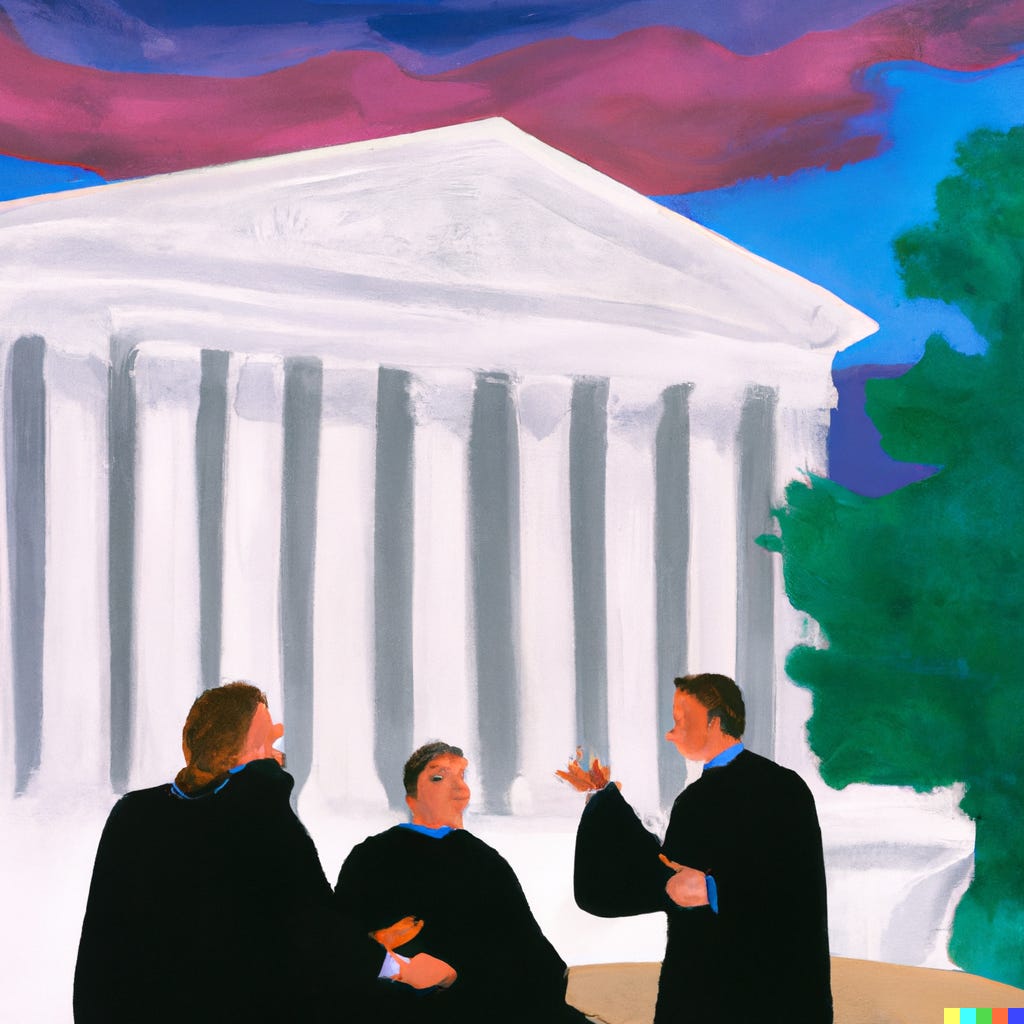The Amar Brief
When Brett Kavanaugh was nominated to the Supreme Court, Akhil Reed Amar testified on his behalf, arguing that the candidate had “studied the Constitution with more care, consistency, range, scholarliness, and thoughtfulness than any other sitting Republican federal judge under age 60” and was “the best choice from the long list of 25 potential nominees publicly circulated by President Trump.” And when a draft of the Dobbs decision was leaked, Amar argued that there was “nothing radical, illegitimate or improperly political” in Justice Alito’s reasoning.
Amar is a self-described “pro-choice Democrat” but it’s safe to say that he is widely respected across the ideological spectrum. The appendix to his published testimony at the Kavanaugh hearings contains the following biographical information:
After graduating from Yale College, summa cum laude, in 1980 and from Yale Law School in 1984, and clerking for then Judge (now Justice) Stephen Breyer, Amar joined the Yale faculty in 1985 at the age of 26. His work has won awards from both the American Bar Association and the Federalist Society, and he has been cited by Supreme Court justices across the spectrum in more than three dozen cases—tops in his generation. He regularly testifies before Congress at the invitation of both parties; and in surveys of judicial citations and/or scholarly citations, he invariably ranks among America’s five most-cited mid-career legal scholars.
Given his reputation and standing, the impact of a recent amicus curiae brief filed by Amar in the Trump v. Anderson case could be decisive.1 The brief is written jointly with his brother Vikram David Amar, himself a distinguished scholar of the Constitution.
Prior to reading the brief, I harbored two misconceptions about this case. First, I thought that the “insurrection” implicitly referenced in Section 3 of the 14th amendment was the Civil War, in comparison to which the events of January 6, while diabolical, seem minor. Second, I thought that the ruling by the Supreme Court in this case would govern Donald Trump’s eligibility to appear on the ballot not just in Colorado, but across all states. It appears that I was mistaken on both counts.
The Amar brothers acknowledge that “the Trump-fueled insurrection of 2020–21 pales in comparison” with the Civil War, and by this standard the “invocation of Section Three looks rather cutesy, a gimmick of clever lawyers and law professors.” However, “if one understands—as did all the men who drafted and ratified Section Three—that before the giant insurrection that began in mid-April 1861 there was a smaller one that was also of central concern, then the matter looks entirely different. Today’s facts are remarkably similar to those of the First Insurrection of the 1860s.”
Specifically:
In that First Insurrection, high-level executive officials in Washington, DC, violated their solemn constitutional oaths as part of a concerted plan not just to hand over southern forts to rebels, but also to prevent the lawful inauguration of the duly elected Abraham Lincoln. The parallels between this insurrection in late December 1860 and January 1861 and the more recent Trump-fueled insurrection of late December 2020 and January 2021 are deeply and decisively relevant to today’s case.
These claims are defended and documented with reference to the historical record in the remainder of the brief.
That said, the Amar brief is submitted “in support of neither party in this case.” The authors argue that while Colorado should be permitted to exclude Trump from the primary ballot, this should not be binding on other states:
[T]he Constitution’s structure enables a fifty-state solution in which different states may properly have different procedures and protocols for implementing Section Three. Some states may carefully police ballot access even in primary elections; others will focus more on the general ballot. Still others may wait until vote tabulation begins; and yet another cluster of states may defer to Congress as the last actor when electoral-college ballots are unsealed.
I am not a trained lawyer and thus unable to evaluate the arguments here with any confidence. But it does seem to me that if a majority of the Justices are persuaded by the Amar brief, the question of Donald Trump’s eligibility to serve as President for a second term could well remain unanswered until the counting of electoral votes on January 6, 2025.
Brace yourself.
I thank David Levey for bring the Amar brief to my attention via email.


